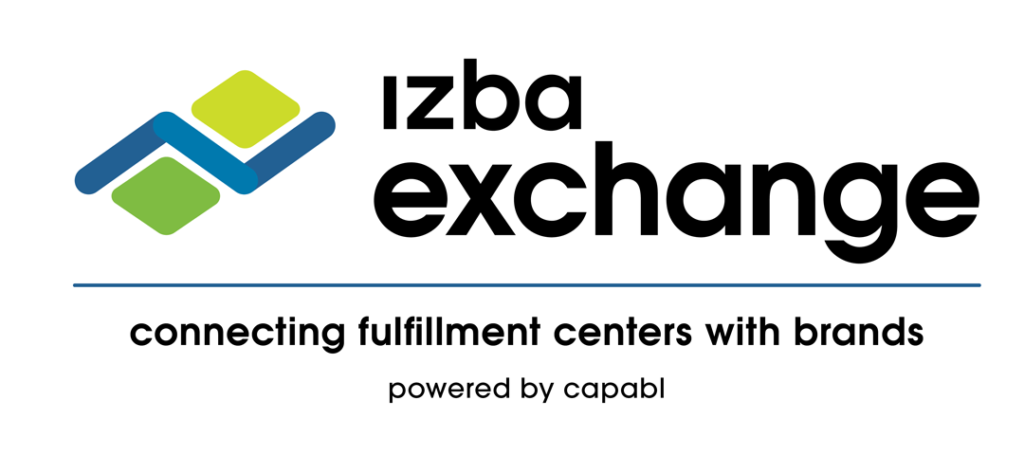
In the competitive world of cosmetic companies, effective inventory management is paramount to success. Without a well-designed and efficient system in place, businesses can face a multitude of challenges that can ultimately hinder their growth and profitability. This ultimate guide aims to provide a comprehensive understanding of inventory management specifically tailored to the cosmetic industry. We will explore the importance of efficient inventory management, the key challenges faced by cosmetic companies, the essential components of a successful inventory management system, the role of technology in streamlining operations, and sustainable inventory management practices.
Understanding Inventory Management in the Cosmetic Industry
The Importance of Efficient Inventory Management
Efficient inventory management plays a crucial role in the overall success of cosmetic companies. It ensures that products are readily available to meet customer demands while minimizing unnecessary costs associated with excess inventory or stockouts. By optimizing inventory levels, companies can enhance their cash flow, reduce carrying costs, and improve customer satisfaction.
Moreover, efficient inventory management can also help cosmetic companies stay competitive in a rapidly evolving market. By accurately forecasting demand and aligning inventory levels with consumer preferences, companies can introduce new products more effectively and capitalize on emerging trends. This proactive approach not only boosts sales but also fosters brand loyalty among customers who value innovation and timely product availability.
Key Challenges in Cosmetic Inventory Management
While inventory management is vital for all industries, the cosmetic industry faces unique challenges. The perishability of certain cosmetic products and the constant introduction of new trends require companies to manage their inventory with precision. Additionally, the seasonality of certain products and short product lifecycles further complicate inventory planning.
Another significant challenge in cosmetic inventory management is the need to maintain a diverse range of products to cater to various customer preferences. Managing the inventory for a wide range of colors, textures, and packaging options can be complex and demanding. Furthermore, the global nature of the cosmetic industry necessitates managing inventory across multiple locations and supply chains.
Furthermore, the rise of e-commerce and omnichannel retailing has added another layer of complexity to cosmetic inventory management. Companies must now synchronize their online and offline inventory to provide a seamless shopping experience for customers. This requires real-time visibility into stock levels, efficient order fulfillment processes, and agile inventory replenishment strategies to prevent stockouts and backorders.
Essential Components of Inventory Management
Inventory Tracking and Control
Accurate and real-time inventory tracking is the foundation of effective inventory management. By implementing a robust system that tracks the movement of every item, companies can maintain visibility over their inventory levels, locations, and usage trends. It enables them to make informed decisions regarding replenishment, production, and distribution.
Implementing control measures, such as barcode scanning and automated inventory audits, helps minimize errors and discrepancies. Regular cycle counting allows companies to identify and address any inconsistencies promptly.
Additionally, advanced inventory tracking systems can provide valuable insights into inventory turnover rates, allowing companies to optimize their stock levels and avoid overstocking or stockouts. By analyzing historical data and usage patterns, businesses can identify slow-moving items and take appropriate actions, such as implementing promotional strategies or adjusting procurement quantities.
Demand Forecasting and Planning
Demand forecasting is a critical aspect of inventory management that helps companies anticipate customer demand accurately. By analyzing historical sales data, market trends, and customer preferences, companies can forecast demand with greater accuracy.
Based on the demand forecast, companies can create comprehensive inventory plans that take into account lead times, production cycles, and supplier capabilities. Effective planning ensures that enough inventory is available to meet customer demands without excessive stock levels.
Furthermore, demand forecasting can also assist companies in identifying seasonal trends and fluctuations in customer preferences. This information can be used to adjust production schedules, optimize inventory levels, and develop targeted marketing campaigns to capitalize on peak demand periods.
Supplier Management and Purchasing
A well-managed supplier network is essential in ensuring a steady supply of high-quality products. Building strong and strategic relationships with suppliers helps mitigate potential disruptions and delays in the supply chain. Regular communication and collaboration with suppliers aid in forecasting demand, optimizing lead times, and reducing the risk of stockouts.
Efficient purchasing practices, such as setting minimum and maximum stock levels and implementing just-in-time inventory strategies, can help companies optimize their inventory levels and minimize holding costs. Streamlining the purchasing process through automation and electronic procurement systems can also save time and reduce errors.
Moreover, effective supplier management involves evaluating supplier performance and conducting regular supplier audits to ensure compliance with quality standards and delivery timelines. By monitoring supplier performance metrics, companies can identify areas for improvement and make informed decisions about supplier relationships.
Overall, successful inventory management requires a holistic approach that encompasses accurate tracking and control, demand forecasting and planning, as well as strategic supplier management and purchasing. By implementing these essential components, companies can optimize their inventory levels, reduce costs, and enhance customer satisfaction.
Implementing a Successful Inventory Management System
Choosing the Right Inventory Management Software
Investing in the right inventory management software is crucial for seamless operations. The software should cater specifically to the needs of cosmetic companies, providing features like batch tracking, expiry date management, and color variant tracking.
Furthermore, the software should integrate seamlessly with other systems, such as point-of-sale systems and accounting software, to ensure accurate and real-time data synchronization. Cloud-based solutions offer the advantage of accessibility from anywhere, facilitating remote management and collaboration.
Training Staff for Effective Inventory Management
Implementing a new inventory management system requires comprehensive training of staff members. Properly trained employees can utilize the system to its fullest potential, ensuring accurate data entry, efficient order processing, and precise inventory tracking. Regular refresher courses and ongoing training sessions help maintain a high level of proficiency.
Regular Auditing and System Updates
Regular auditing is essential to evaluate the effectiveness and accuracy of the inventory management system. By conducting periodic physical counts, comparing the results with the system records, and investigating any discrepancies, companies can identify and rectify issues promptly. Additionally, software updates should be installed regularly to ensure the system remains optimized and up-to-date.
The Role of Technology in Inventory Management
The Impact of Automation on Inventory Management
Automation has revolutionized inventory management by eliminating manual processes and reducing the risk of human error. Automated systems can generate real-time reports, forecast demand, trigger purchase orders automatically, and even suggest optimal reorder quantities. By streamlining routine tasks, companies can focus on strategic decision-making and improve overall efficiency.
Leveraging AI and Machine Learning for Demand Forecasting
The advancements in artificial intelligence and machine learning have greatly enhanced demand forecasting capabilities. These technologies can analyze vast amounts of data, including sales history, seasonality, macroeconomic factors, and even social media sentiment, to generate accurate and dynamic demand forecasts. By leveraging AI and machine learning, companies can optimize inventory levels, reduce stockouts, and improve customer satisfaction.
Sustainable Inventory Management Practices
Minimizing Waste in Cosmetic Inventory Management
Sustainability is of increasing importance in all industries, including cosmetics. Minimizing waste throughout the supply chain is not only environmentally conscious but also financially beneficial. Companies can implement practices such as product bundling, promotion optimization, and expiry date monitoring to reduce waste and minimize the impact on the environment.
Ethical Sourcing and Supplier Relationships
Ethical sourcing is a crucial aspect of sustainable inventory management. Companies have a responsibility to ensure that their raw materials are sourced ethically and sustainably. Building strong relationships with suppliers who share similar values allows companies to collaborate on sustainable initiatives, reduce waste, and support responsible sourcing practices.
With the ever-evolving cosmetic industry and the increasing demands of consumers, sound inventory management practices are vital for success. By implementing efficient systems, leveraging technology, and adopting sustainable practices, cosmetic companies can optimize their operations, reduce costs, and ultimately thrive in the competitive market. This ultimate guide serves as a valuable resource for companies looking to enhance their inventory management practices and secure a competitive edge.
Ready to elevate your cosmetic company’s inventory management to the next level? Izba Consulting is here to guide you through every step of the process. Our expertise in driving profitability and enhancing supply chain operations makes us the perfect partner for your business journey. From starting up to scaling and exiting, we provide strategic partnerships and hands-on management to ensure your success. Benefit from our team’s unique blend of Fortune 500 and startup experience by subscribing to our newsletter today, and start transforming your inventory management into a competitive advantage.




